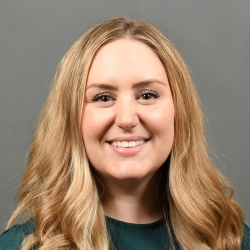Supportive care is specialized healthcare used to support the needs of individuals with a serious illness, regardless of diagnosis, prognosis or treatment. This unique medical approach focuses on managing the patient’s symptoms and effectively enhancing their quality of life.
The Supportive Care Consult Service at the MVHS Cancer Center works closely with the patient’s primary physician to provide symptom management while treating the entire person and allowing patients the choice of receiving high-quality, personalized care.
Goals of Supportive Care
- To take enough time with you and your family or caregivers to find out what matters most to you and provide support to you and the important people in your life
- Coordinate with your healthcare team to improve your care
- Create a relationship with you that helps remove barriers to healing and access healing options you may not have considered
- Engage your mind, body, spirit, family and community to support healing.
Palliative Care Versus Hospice Care
Palliative care is not the same as hospice care. Palliative care may be provided at any point during a person’s illness, even right from the time of diagnosis. Palliative care may be given at the same time as typical treatments. Palliative care is appropriate at any age, at any stage of disease and along with any other type of treatment a patient may be receiving.
Hospice care is palliative care at the end of life. To enter the hospice program, a person’s life expectancy must be six months or less, and they must make a commitment to forgo usual and customary treatments for their underlying disease.
Who We Are
The Community Supportive Care interdisciplinary team is made up of:
- Clinicians that specialize in Supportive Care
- Social Workers that understand how a serious illness can affect you and your family
- Pharmacists that understand the benefits and risks of all your medicines and can help with making choices about prescription and over-the-counter drugs
- A wide range of skilled professionals in our community including: spiritual care, mental health professionals, rehabilitation therapists and medical sub-specialists as needed.
For more information about Supportive Care, call 315-624-5555.
How Palliative Care Works and What We Do
- We listen
- We coordinate your care with all other medical providers
- We focus on relief of symptoms such as pain, nausea, fatigue, shortness of breath, constipation, loss of appetite, nausea and sleep disturbance
- We help you and your family deal with stress related to chronic illness and treatments.
- We treat the problem ourselves or arrange for a referral to your primary care clinician or other qualified professionals
- Our clinical pharmacist will take a close look at all your medicines and will offer suggestions if necessary.




